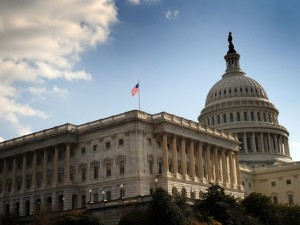Having just passed and sent Rep. Amodei’s (R-Nev.) H.R. 761, the “National Strategic and Critical Minerals Production Act of 2013,” to the U.S. Senate, the U.S. House of Representatives may vote on a second important piece of legislation with wide-reaching implications for our mineral resource supply issues this week.
After outlining the strategic importance of Rep. Paul Gosar’s (R-Ariz.) H.R. 687, which would approve a land swap for an Arizona copper mine, on The Hill’s Congress Blog, American Resources Principal Daniel McGroarty elaborated on the issue in the Arizona Daily Star. McGroarty makes clear:
“[W]e can never control uncertainties beyond our borders. But with so much in the wider world outside our control, there is one step we can take: We can remove constraints to our own economic growth.
Put simply, if we want to put American manufacturing on a stronger, more stable footing, we need to start by providing the raw materials of manufacturing — metals and minerals — here at home.”
Arizona’s proposed Resolution Copper Mine, a project in need of Congressional legislation subjecting “environmentally valuable” land to federal protection in exchange for resource development on smaller, less “valuable” land, could serve to all but eliminate the United States’ copper gap, which has soared to an “annual 600,000-metric-ton shortfall between the copper we use and the metal produced in American mines.”
The editorial board of the Arizona Republic, the state’s leading newspaper agrees, and has endorsed Rep. Gosar’s legislation, which enjoys bipartisan support from the state’s congressional delegation and has “the potential to be an economic bonanza for our state and a national security boon to our country.” Citing ARPN, the paper argues:
“Copper is essential for electronics, homebuilding, cars and the fast-growing alternative-energy field. Domestic production of copper falls short of demand, which raises national-security issues because copper is essential for weapons systems. A domestic supply is far more reliable. The ore Resolution wants to tap could significantly reduce the gap between demand for copper and domestic production, according to the American Resources Policy Network.
Two-thirds of the copper mined in the United States comes from Arizona, according to this group, a non-profit that supports domestic mineral production. Resolution would tap one of the largest known undeveloped copper reserves in the world to keep our state a major player in copper production.
The benefits of the mine are significant for Arizona and the nation. Too significant to let this project continue to languish.
The House should move this forward.”
Meanwhile, aside from the direct and indirect ramifications from the Arizona land swap bill, the issue is also emblematic of our national mineral resource issues. Having stopped viewing many metals and minerals through a strategic lens, the U.S. finds itself in a precarious position where we there are currently 19 strategic minerals for which we are 100% import dependent.
For the sake of our national security and economic well-being, it is time we pick up that strategic lens again and begin formulating a coherent critical minerals strategy. The fate of Rep. Gosar’s bill (and Rep. Amodei’s bill in the Senate, for that matter) will serve as an indicator whether this message has begun to resonate with our policy makers.






